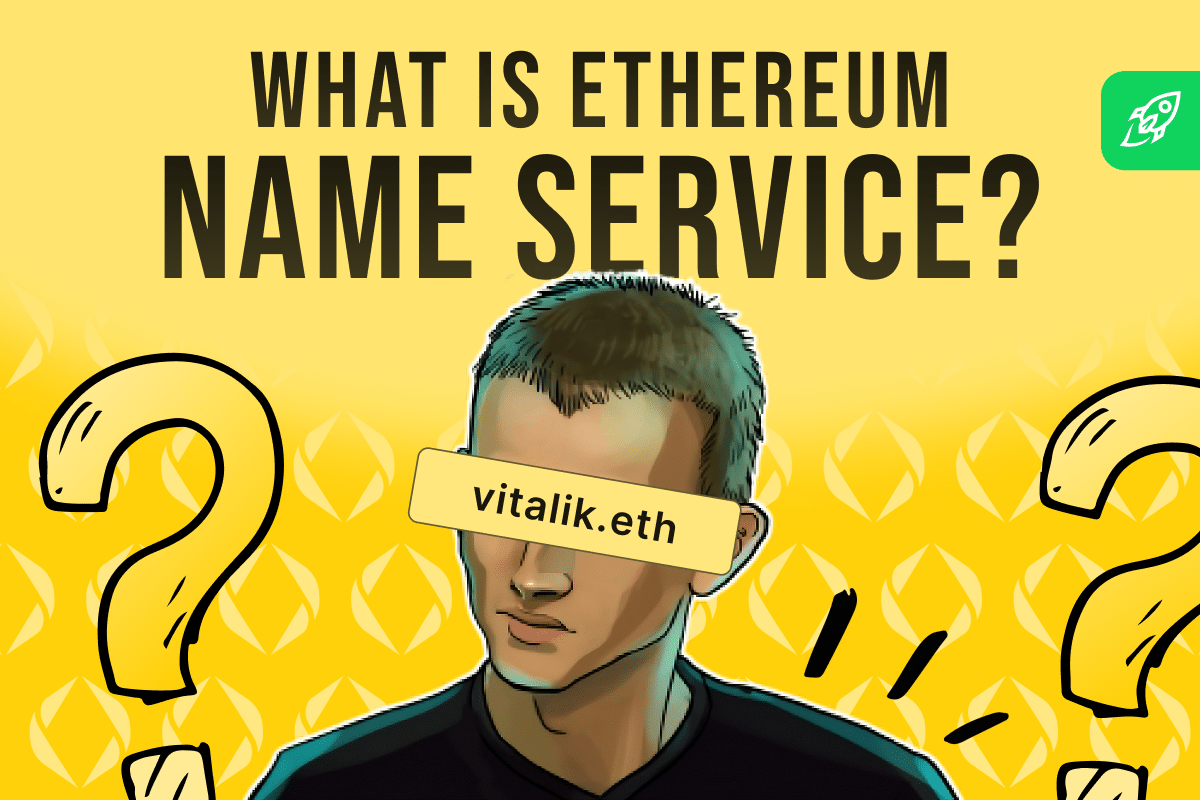beginner
Navigating the vast universe of Ethereum and blockchain can sometimes feel like deciphering an alien language. Amidst all the technical jargon, the Ethereum Name Service (ENS) emerges as a beacon of simplicity. Let’s embark on a journey to understand what ENS is, why it’s so crucial, and how it’s shaping the future of the digital world.
Hello! I’m Zifa, a crypto enthusiast with three years of experience covering the ins and outs of the blockchain world. Whether you’re new to crypto or a seasoned expert, I’m here to share insights and updates from this ever-evolving domain.
What Is ENS?
Imagine you’re in a massive city where every house has a complicated numerical address. It’s hard to remember, right? Now, what if you could replace that with a simple name, like “BlueBird Lane”? That’s ENS in a nutshell, but for the Ethereum blockchain.
Every account or smart contract on Ethereum has an address. But instead of being user-friendly, these addresses look like “0x123s…abzcd.” ENS was introduced to replace these complex strings with memorable names, such as “zifa.eth.”
Developed primarily by Nick Johnson and launched in May 2017, ENS operates on the Ethereum blockchain. This decentralized nature ensures it’s not controlled by any single entity, making it both innovative and secure.
Does ENS Have a Token?
Yes, ENS does have a token. ENS is the governance token of the Ethereum Name Service protocol, which is responsible for issuing “.ens” domains. As an ERC-20 utility token, ENS is intrinsically linked to the Ethereum Name Service, a decentralized naming system built on the Ethereum network.
This token was distributed via an airdrop to all ENS domain holders, contributors to the ENS project, and the ENS DAO community treasury. Right from its inception, its primary function has been the governance of the ENS protocol and the community treasury.
Is Ethereum Name Service a Good Buy?
The value proposition of the Ethereum Name Service (ENS) largely depends on individual use cases and the broader adoption of Ethereum and Web 3.0 technologies. To those deeply involved in the Ethereum ecosystem or betting on the growth of decentralized applications, ENS domain names can offer both utility and potential branding opportunities. However, like with all investments, it’s essential to conduct thorough research and consider your financial goals and risk tolerance.
How to Buy Ethereum Name Service Token?
If you’re keen on acquiring the Ethereum Name Service (ENS) token, Changelly has got you covered. Simply visit our dedicated page, where you can effortlessly exchange Ethereum, Bitcoin, or any of our 500+ digital assets for ENS tokens. Dive into the world of decentralized domain naming with Changelly by your side!
How Does ENS Work?
ENS, or Ethereum Name Service, is like a digital translator for the Ethereum universe. Imagine using a map: you type in a place’s name, and the map pinpoints its exact location. Similarly, when you input an Ethereum name like “zifa.eth,” ENS delves into its records and translates that name into the corresponding Ethereum address or other related data.
Here’s a deeper dive: Every domain name within ENS has an owner, known as a “registrant.” They register their chosen domain on the ENS. This registration process is overseen by the “registry,” a component of ENS that keeps track of these domain allocations. “Registrars,” smart contracts that manage these domain names, operate under the main registrar. These registrars can be modified by the domain’s owner as needed.
Now, there’s a distinction between owning a name and a registration. A “name” is how ENS identifies a domain, like “john.eth.” These names are processed using an algorithm called “namehash.” This is because ENS doesn’t use human-friendly names directly; instead, it translates them into 256-bit cryptographic hashes. For example, “john.eth” might be represented as a unique hash like 0x787192fc5378cc32aa. Before hashing, names are normalized to ensure consistency, meaning “John.eth” and “john.eth” are treated the same.
To illustrate its real-world utility, imagine Jack wants to send Ethereum to Rose. Instead of requesting her complex Ethereum address, he simply asks for her ENS name. Rose responds with “rose.eth.” Jack inputs that into his Ethereum wallet, and with ENS’s magic, it’s automatically converted into Rose’s actual Ethereum address. Voilà, transaction is done!
Can I Use ENS?
Absolutely! ENS is open to anyone interested in registering a more user-friendly domain for their Ethereum address. Whether you’re an individual wanting a personalized Ethereum address or a business aiming for a branded presence in the Ethereum ecosystem, ENS provides a platform to acquire your desired domain, making your interactions on the blockchain more recognizable and straightforward.
How to buy and setup ENS domain
How Much Is the Ethereum Name Service Fee?
Registering an ENS domain comes with a yearly renewal fee. For names that are 5 characters or longer, the cost is $5 per year. If you’re eyeing a 4-character name, that’ll set you back $160 annually. And for those ultra-short 3-character names, the fee is $640 each year. It’s important to note that these fees are paid in ETH, Ethereum’s native cryptocurrency.
Why is Ethereum Name Service Important?
ENS is like an unsung hero of the Ethereum ecosystem. Here’s why:
Simplicity: Just as you’d prefer “BlueBird Lane” over a confusing string of numbers, ENS offers easy-to-remember names. This drastically reduces errors. For instance, sending funds to “alice.eth” is much more intuitive than a long alphanumeric address.Versatility: Beyond Ethereum addresses, ENS can point to other data, like websites. In the future, instead of a traditional URL, someone might just guide you to their site with “alice.eth.”Decentralization & Security: Traditional domain systems can be controlled or censored by centralized entities. ENS, being on the Ethereum blockchain, is decentralized, ensuring robust security.Promotion of Decentralized Web: As the decentralized web (Web 3.0) grows, ENS names could become as common as .com domains, paving the way for a more interconnected and decentralized internet.
Is Ethereum Name Service Safe?
ENS operates on the Ethereum blockchain, renowned for its security and decentralization. This ensures that the underlying mechanics of ENS are strong and resistant to tampering. However, users should always exercise caution, verifying they’re interacting with the official ENS platform and keeping their private keys and domain management tools secure to prevent potential misuse or loss.
ENS and Web 3.0: A Match Made in Digital Heaven
Web 3.0 is the next stage of the evolution of the internet. While our current internet (Web 2.0) is centralized, Web 3.0 aims to decentralize everything, giving power back to users.
ENS is the cornerstone of this vision. Traditional domains like “.com” or “.net” are governed by centralized entities. But ENS domains, like “rose.eth,” are on the Ethereum blockchain, making them decentralized.
As decentralized applications (dApps) and other Web 3.0 technologies evolve, they’ll need user-friendly addresses. Imagine a new Web 3.0 social media platform where you’d have to remember every friend’s blockchain address. Not very user-friendly, right? ENS simplifies this, allowing users to interact with memorable names, making the Web 3.0 experience smoother.
In essence, ENS is not just a tool for Ethereum; it’s a foundational piece of the Web 3.0 puzzle. As we transition towards a more decentralized internet, ENS will play a pivotal role in ensuring this new digital realm is accessible and user-friendly.
Disclaimer: Please note that the contents of this article are not financial or investing advice. The information provided in this article is the author’s opinion only and should not be considered as offering trading or investing recommendations. We do not make any warranties about the completeness, reliability and accuracy of this information. The cryptocurrency market suffers from high volatility and occasional arbitrary movements. Any investor, trader, or regular crypto users should research multiple viewpoints and be familiar with all local regulations before committing to an investment.
Source: https://changelly.com/blog/what-is-ethereum-name-service/



